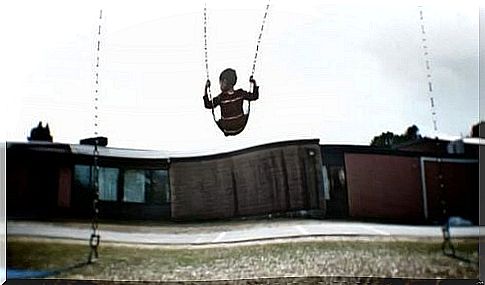How Does Parental Absence Affect Children? – Being Parents

A teenager enjoys a healthy relationship with both parents, but circumstances can prevent both parents from participating. Therefore, in this article, we will develop how the absence of parents affects children.
Death, divorce, or any other unpleasant event can leave a teenager without a parent. If this happens, it is necessary to know how to deal with the emotional effects it can cause in the child. Thus, the long-term effects of a single-parent family can be mitigated.
How does parental absence affect children?
Parents are a source of comfort and warmth for their children. With one or both parents absent, the adolescent may be deprived of all the attention he needs.
Whether the mother or father is away from the home, children who do not have one or both parents at home can suffer and feel that they do not have all the support they need.
To hide this vulnerability and possibly counter it, some young people may, among other things, become aggressive with the intention of intimidating others before becoming victims themselves. However, it is also true that not all children experience the effects in the same way.
Problems related to the absence of parents
Parents’ absence can be complicated for children. Therefore, problems such as the following can occur:
1. Problematic relationships
When a teenager loses a parent, it indirectly affects their relationships with others. A dominant consequence is the problematic relationship. Admittedly, the teenager can develop a bad self-image and become more and more irritated, in addition to fear of greater abandonment.

2. Cognitive effects
According to a study published in The Journal of Human Resources, single-parent households are more likely to have adolescents with lower cognitive abilities.
Sometimes a factor that contributes to the decrease in cognition in adolescents with an absent parent is the low participation of older people in the education of a teenager. One way to combat this condition is to find support through community or family involvement.
3. Aggression problems
A teenager who does not have a parent may be dealing with resentment, which can manifest as aggression. Parental influence in a child’s early years teaches them the appropriate responses and actions to cope with aggression.
When one of the parents is missing, these lessons can go unnoticed. Thus, by reaching adolescence, the young person is more likely not to be able to manage his own aggressiveness in an appropriate way.
4. Anxiety
The child may be prone to episodes of anxiety. This is because a teenager without a mother did not have the intimacy and closeness of a healthy relationship with this attachment figure.
In addition to hyperactivity, anxiety issues are linked to maternal separation. For teens, this can cause problems with academic performance.
5. Academic performance
A normal family structure has a positive impact on the academic performance of the adolescent. Parents encourage their children to do better in school, while teens remain motivated by the desire to make adults proud of themselves.
With parents absent, adolescents lose their main motivator and, therefore, hardly worry about their performance in school.

6. Drugs and alcohol abuse
Teens with absent parents are more likely to become addicted to drugs or to consume alcohol before reaching the legal age to do so. By not having anyone nearby to control them, they begin to take responsibility for their freedom. Therefore, they don’t always use it correctly.
In fact, research has shown that parental absence increases the risk that children will drink and smoke before they become adolescents.
Finally, remember that the absence of parents can have a greater impact on the little ones. However, not all children are the same, so you can be sure that this will not affect them in the same way.
However, in these cases, the most important thing is to pay attention and affection, in addition to always being present to listen to their concerns.









